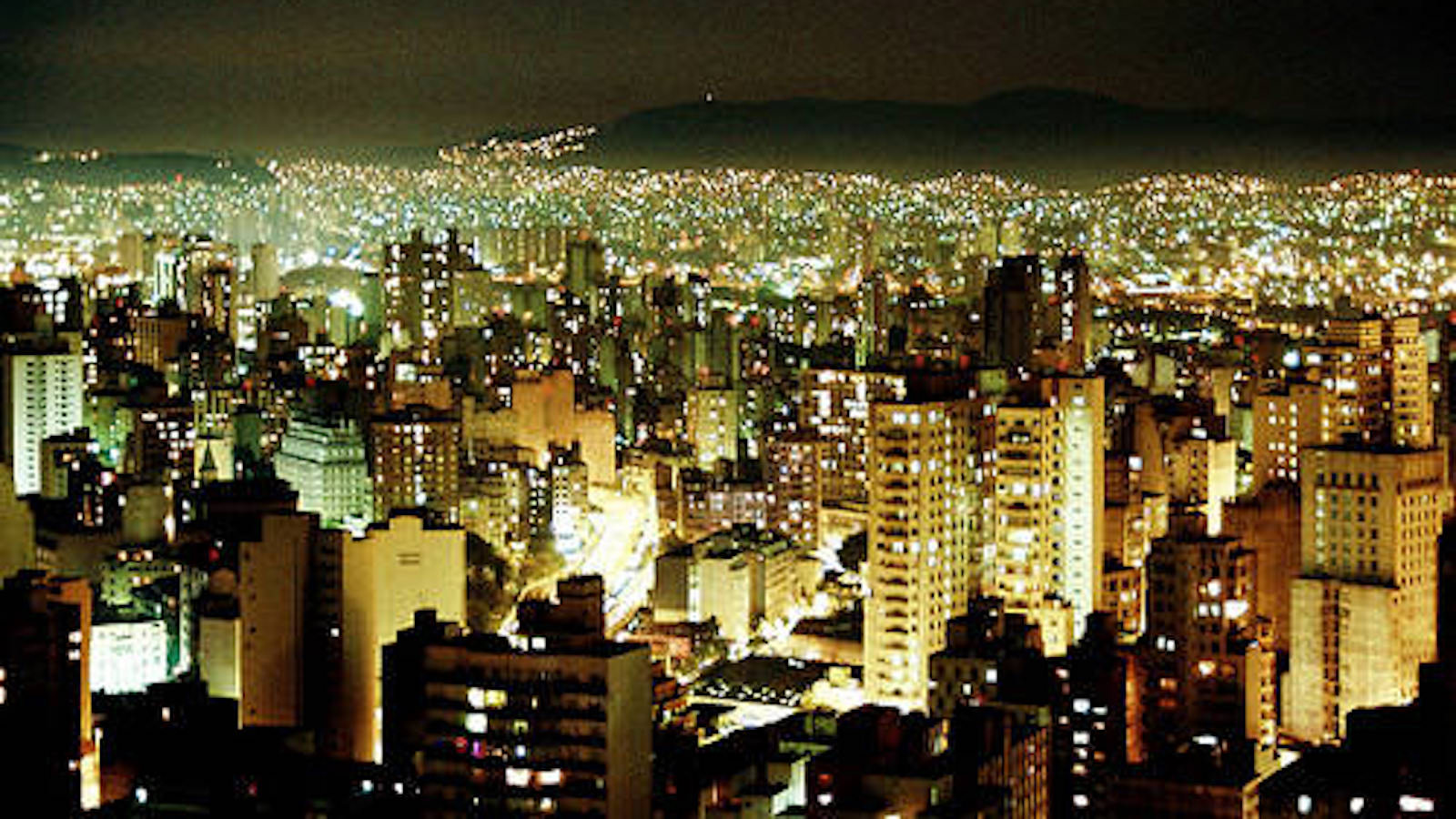
The Majesty of Brazil
It’s an experience I could repeat a thousand times and find myself in awe each time. It’s flying into or out of Sao Paulo, Brazil, at night. The lights — glittering gold as in a dream — stretch for seemingly endless miles. It’s a work of living art, more spectacular than you can find in any museum. It was created by hundreds of millions of human hands over the course of a hundred years, undesigned by any one of those hands.
The usual trope about a city like this is that it reduces your sense of being an individual. If we understand the glory of a place like this, you would certainly feel the opposite. The city reveals a salient fact about the world: no one is really in charge of it. Another way to put it is that we are all in charge of our piece of it, but the whole comes together only as a product of an extended and unplanned process of coordinating billions of tiny decisions.
This realization should give us comfort. Power threatens life and liberty every day in this world of ours. But ultimately there is no power on earth as mighty as the extended product of individuals working out their lives through their control of their own minds and own property in cooperation with others. We see the results from the air, when we look down upon great cities, but at this very moment we are in a place from which we have no control at all.
When I was last in Sao Paulo, I was leaving from a wonderful event in Porto Alegre, the Liberal Forum as sponsored by the Institute for Entrepreneurial Studies. This event was like no other I had ever attended. I don’t think that anything like it exists in the United States.
Fully 5,000 people came. I gave the closing talk to the largest crowd to which I had ever spoken. The lights were bright enough that I could only see the first few rows, which is probably a good thing for the nerves, if you know what I mean. The last panel generally covered the subject of free markets, and I gave a case for anarchism and capitalism.
But here is what is interesting about this event. It brings together sitting office holders and aspiring politicians, heads of major corporations in Brazil, academics and students, journalists and activists, media personalities and professionals of all sorts. The mix is wonderful. I think it inspires the speakers and panelists to make their ideas as compelling and truthful as possible. That’s because there is accountability all around.
The general flavor of the conference is liberal in the classical sense. Every session I went to was exploring the great problem of our time, which is how to obtain more freedom for individual creativity so that more people can experience the good life. The core of the challenge is how to roll back the crufty layer of bureaucracy, bad law, political corruption, and administrative despotism that is holding back progress.
For my own talk, I decided to use my status as a foreigner — we can get away with things that residents cannot — to push out the boundaries of opinion. I began by confirming the rumours that I am indeed an anarchist. In the past this would have been a shocking claim, but in times when leviathan is killing economic growth and so obviously holding back progress in so many ways, anarchism no longer seems like a preposterous idea.
The loathing of government is at a high-water mark all over the world. All people today in all places are looking for ways to escape that great paradigmatic error of the 20th century. We built huge states to control our lives and manage our world, and now we look at the results and see nothing like what was expected. The state doesn’t serve society. It serves the elites at the expense of society.
If only we could push a button to make it go away but the state has special legal standing that no other institution has. That gives it a special claim to immortality. We are not in charge, all claims of democracy aside. It rules and there is no easy way to end that rule. Indeed, the state was a very expensive error.
The irony is that such statements are no longer as controversial as they once were. Anarchism is more easily defended than in the past. What’s really controversial concerns the positive vision for what kind of social order should replace the prevailing paradigm.
The core of my talk, then, was a defense of capitalism. I noted that this word was not often used at this event. People prefer the terms free economy, free market, free enterprise, competitive economy — all find phrases. In some ways, it doesn’t really matter what you call it. But I argued that there is special merit to the term capitalism once it is properly understood.
Jumping past my basic explanations of cooperation, competition, emulation and learning, private property and the rest, we come to the core point. Society cannot become rich without capital. You can have a society of traders, creators, buyers and sellers, all hard working and wonderful, but without capital you can never really get past that first stage of social development. Capital means to produce products intended as productive agents of other products — signals of an extended order and the complexification of the division of labor.
This also means that society must have tolerance toward the accumulation of wealth. That’s not as easy as it sounds. States hate alternative power centers. People are envious. Neighbors don’t always take kindly to unequal distribution of wealth. But inequality there must be!
A lecture such as this was only made possible because a wonderful organization called Mises Brazil has paved the way. Their publication output is marvelous. They just put in print a new book on Bitcoin. This shows that they are not only about preserving old knowledge but also about exploring new areas of thinking.
Brazil is so remarkable: its history, resources, people, culture, music, food, everything. There is only one giant problem: its government. Solve that and the place would be the most marvelous on earth. It’s my second trip but already part of my heart belongs here.
Free the People publishes opinion-based articles from contributing writers. The opinions and ideas expressed do not always reflect the opinions and ideas that Free the People endorses. We believe in free speech, and in providing a platform for open dialogue. Feel free to leave a comment.



